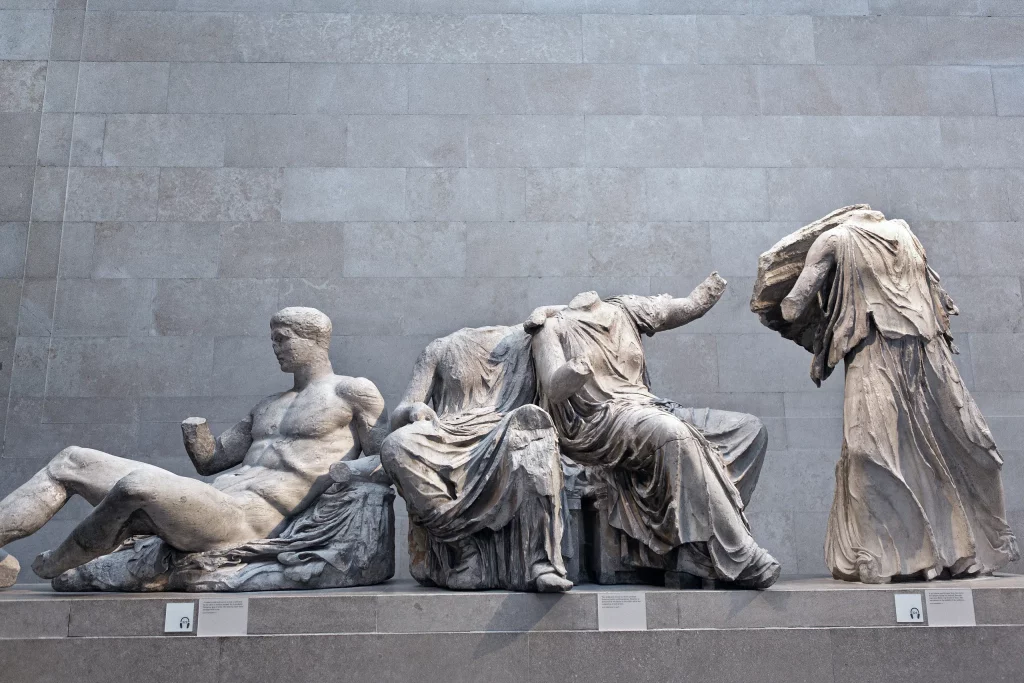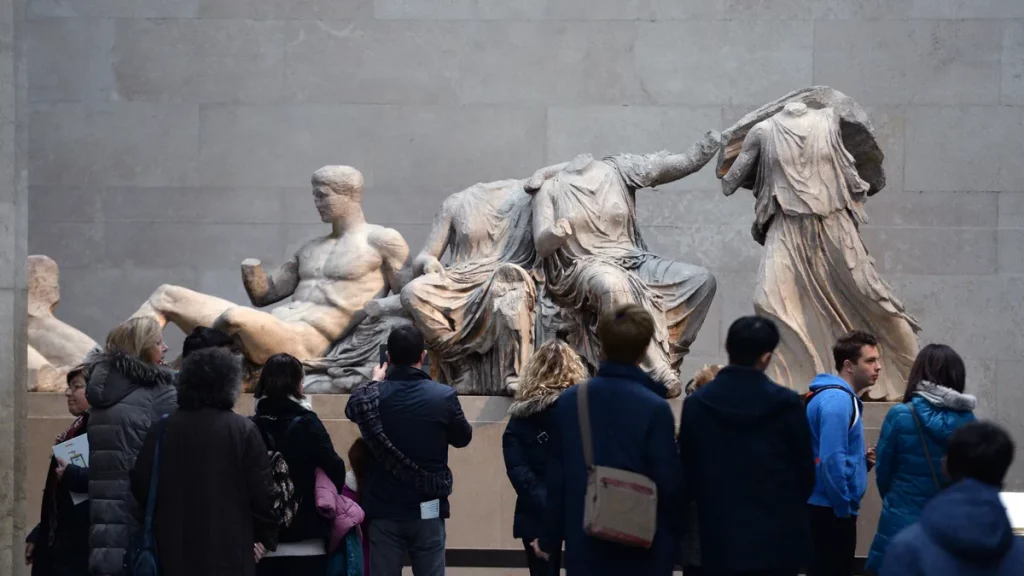UNESCO’s intergovernmental body for the return of cultural property to nations of origin recently made a decision about the Parthenon Marbles that sparked heated debate. Following the request from Greece presented to this body in 1984, the commission unanimously decided to include the return of the Pantheon Marbles in its decision and recommendation documents for the first time.
Perhaps the most contentious examples of cultural heritage are the Parthenon Marbles, also known as Elgin Marbles after Lord Elgin, a Scottish nobleman who stole them from Athens. They are part of the enormous display of ancient art and history that is housed in the British Museum.
Former colonial powers have recently made the decision to give back to the rightful owners some of the looted items from their collections that were taken during colonial occupations. But given its position and the context, it seems unlikely that England will make a comparable move.
Case of The Parthenon Marbles
The ongoing argument about who is the true owner of the Parthenon Marbles involves the highest-ranking officials, museums, and other authorities from both sides, according to numerous news sources. British Prime Minister Boris Johnson made it plain in an interview for a Greek newspaper in March that the UK has no intention of returning the sculptures to Greece.
The British Museum in London made a less conclusive judgment, but it implied that the Marbles had been well-protected there.

Greek Culture Minister Lina Mendoni made the most recent statement about the situation in the news. Because of the “poor circumstances of exposure…at the British Museum,” she urged that the Parthenon Marbles be returned.
She added that it was unlawful for them to have been taken and that “Greece has a valid and legal claim to seek the return of the sculptures to their place of birth.”
A Problem with Institutions or With the Government?
The UNESCO advisory board added fuel to the fire by suggesting that the British Museum change its hardline stance on the Elgin Marbles and give Greece back the priceless artifacts of antiquity, as well as that the dispute was “intergovernmental” rather than institutional.

The British Museum, among other cultural organizations, operates freely and is unaffected by any form of political influence or interference, according to the UK government, which swiftly rejected this argument. Greece raised objections to this stance, reminding the British that, according to international law, “the obligation to repatriate state cultural treasures resides firmly on the government and not on a museum.”
The statues were taken from the Acropolis of Athens by Lord Elgin, and the British Museum’s current possession of them is illegal, according to fresh historical evidence from the Ottoman Empire that was presented by Greek representatives to support their argument.
The Elgin Marbles and The Deeds of Lord Elgin
The Elgin Marbles were initially created by Phidias and his helpers for the Parthenon temple. On Athens’ Acropolis, the Parthenon, a temple dedicated to the goddess Athena, was constructed between 447 and 438 BC.
The artifacts removed by Elgin are made up of 15 metope panels, 75 meters of Parthenon Frieze, 21 sculptures depicting characters from the east and west pediments of the temple, and a few architectural elements. A Caryatid sculpture from the Erechtheum as well as other architectural components was taken by Elgin from other Acropolis structures.
Rejecting Unesco’s Decision
Greece began a number of initiatives to recover its stolen cultural legacy nearly as soon as it earned independence from the Ottoman Empire in 1832. The 1980s saw an increase in global efforts to recover Greek cultural property, and over the years, a large number of organizations supporting Greece’s application were established.
The campaign by the Greek government to unite the remaining sculptures with those in the British Museum is supported by ethical, aesthetic, and legal arguments. The Acropolis Museum should house the Parthenon Marbles alongside the ones that are still on display at the site so that visitors can properly comprehend and appreciate them. As the marble was illegally stolen, it should be restored to its rightful owner in order to preserve the organic appearance of the historic monument.

Check More: Pantera Controversy: Is It Really Necessary to Avoid the Pantera Reunion?
It is unclear if the two sides will be able to resolve the disagreement in light of the latest UNESCO ruling and recommendation. According to recent comments, it appears that London is resolute about upholding its ownership of the Marbles, despite being given moral and legal justifications for doing otherwise.
They ought to at least begin a fresh analysis of the historical support for ownership claims. Given the most recent findings, it is advised to perform another study since the last one was completed in 1816. The UK, however, had turned down the UNESCO committee’s suggestion for a reevaluation.
The national assembly of France has decided to send relics from the colonial era back to Senegal and Nigeria. In a similar vein, Germany has also chosen to return to Nigeria hundreds of artifacts that were stolen during the colonial era. Maybe the UK should learn from them.
